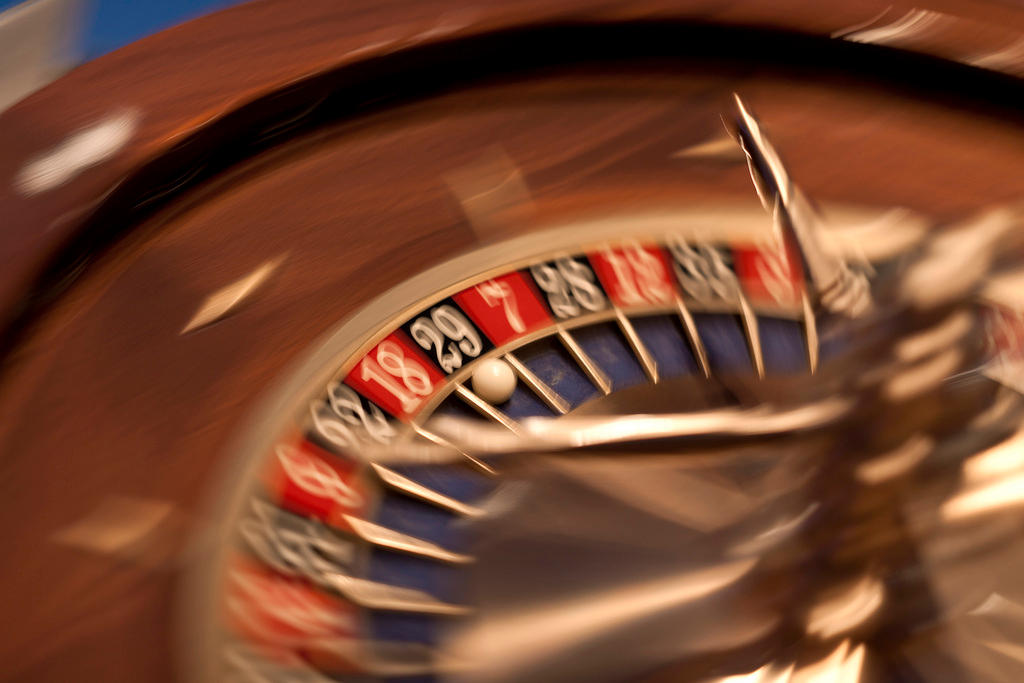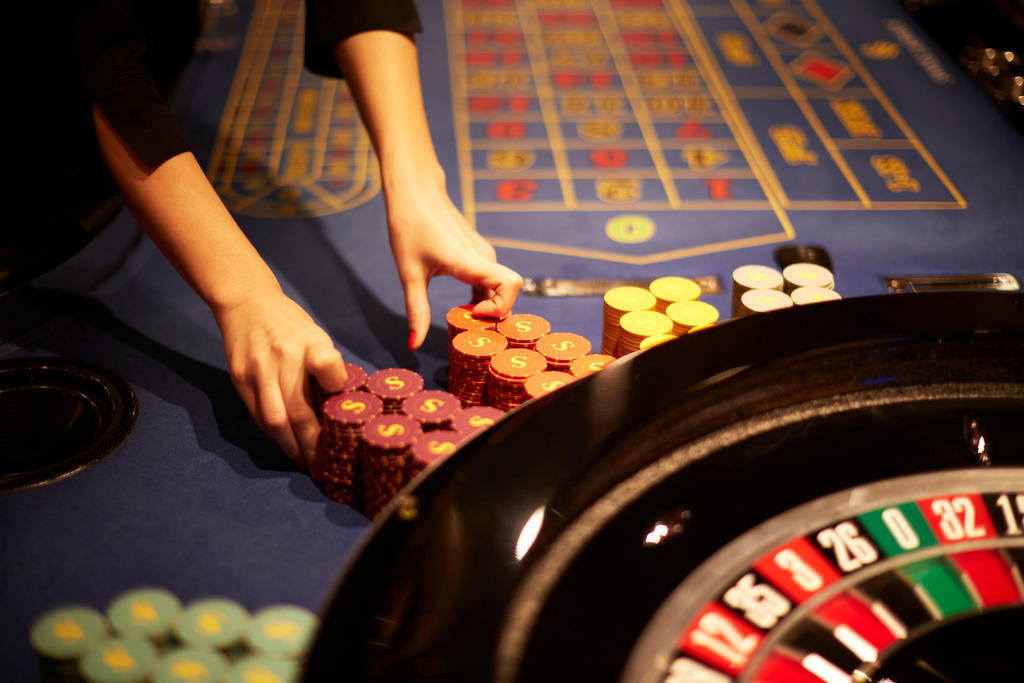Gaming Act ‘will create a huge black market’
A new Gaming Act will just protect Swiss casinos from foreign competition, says Andri Silberschmidt of the referendum committee opposing the legislation. The president of the youth wing of the centre-right Radical Party calls for on-line gambling through foreign providers to be allowed in Switzerland, while still integrating player protection mechanisms.
In future only Swiss casinos are to be allowed to offer on-line gambling. The internet here would be off-limits to foreign providers. That will create a huge black market, which cannot be controlled, nor will there be any protective mechanisms for gambling addicts. Seeing as better solutions are available, this Gaming Act should be rejected by the voters on June 10.
Current legislation in Switzerland consists of the Lottery Act from the year 1923 and the Gaming Act from 1998, neither of which have been amended to any major extent. Considering the large unregulated on-line gambling market right now, there is a great need for legislative reform.
The original and appropriate goal was to regulate and tax this on-line gambling market: to set up protective mechanisms for gambling addicts, while opening up new sources of tax revenue.
Shift into illegality
The new Gaming Act fails to achieve any such goal. It mainly protects the Swiss casino industry from foreign competition. Only Swiss gambling providers, who maintain a physical gambling casino here, are to be allowed to offer on-line gambling. All other providers are to be excluded from the market by means of internet blocking.
Internet blocks are not very effective and can be got around in 30 seconds. Particularly for gambling addicts, that is no real protection.
As a result, foreign gambling providers will continue to provide services, but will become illegal. That will create a huge black market, which cannot be controlled or taxed, and offers no protective mechanisms for gambling addicts.

More
Swiss gambling law protects players
Denmark as an example
On-line concessions for gambling for which anyone – whether Swiss casinos or foreign providers – can bid are the better solution. Providers with a concession can be taxed and have to conform to Swiss regulations.
This model is already working for Denmark, where the black market has just about dried up thanks to a system of on-line concessions. That is very much in the interest of gambling addicts because a black market means, first and foremost, a market without protective mechanisms for gambling addicts.
The state coffers, too, profit from on-line concessions. A bigger market generates higher tax revenues than the casino monopoly scenario. And the players gain too, since they can now choose from a wider range of providers.
Fear of setting precedents
The insufficiency and disadvantages of this bill are very obvious. Why were much better alternatives, like on-line concessions for foreign providers, not taken into account? The answer is to be found no doubt in minister Simonetta Sommaruga’s response during the parliamentary debate: “The casinos got their way here.” The lobbying from the casinos was just too powerful and intense.
Internet blocks set a precedent. Encouraged by the successful lobbying of the casinos, we may well fear that other industries will start following their example and try to use blocking of this kind to drive foreign competition they dislike out of the home market. Instead of so-called protection for gambling addicts, other arguments, such as better protection for domestic consumers or the danger of avoidance of sales tax, are likely to be used as pretexts.
Make way for better legislation
Parliament missed a clear chance here to decide in the public interest. Fortunately there exists in Switzerland the instrument of the referendum, which enables citizens to have a corrective effect on the legislative process. If within 100 days, 50,000 signatures can be gathered opposing a piece of legislation, the Swiss people get to decide whether it becomes law or not. If a majority of voters on June 10 are against the new Gaming Act, parliament will have to come up with an improved draft. That is what is really needed, because on-line concessions are the only intelligent way to go here.
The new Gaming Act should be rejected, to make way for a better piece of legislation – an intelligent solution with on-line concessions for all providers as already exemplified in Denmark. And just to be quite clear: after a “no” vote, sports and culture won’t get a penny less than they get already.
The views expressed in this article are solely those of the author, and do not necessarily reflect the views of swissinfo.ch.
Opinion series
swissinfo.ch publishes op-ed articles by contributors writing on a wide range of topics – Swiss issues or those that impact Switzerland. The selection of articles presents a diversity of opinions designed to enrich the debate on the issues discussed.

More
Lucrative gambling business comes under public scrutiny
Terence MacNamee

In compliance with the JTI standards
More: SWI swissinfo.ch certified by the Journalism Trust Initiative











You can find an overview of ongoing debates with our journalists here . Please join us!
If you want to start a conversation about a topic raised in this article or want to report factual errors, email us at english@swissinfo.ch.